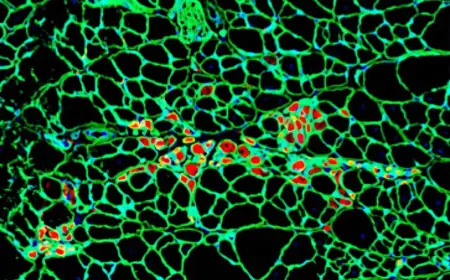Liver Cancer: 60% of Cases Can Be Prevented, Scientists Warn
According to a study conducted by The Lancet Commission, the number of liver cancer cases worldwide could double by 2050, reaching 1.5 million. However, researchers believe that up to 60% of these cases could be prevented by making changes in lifestyle.

A Deadly and Widespread Disease
Liver cancer ranks sixth among the most common types of cancer worldwide and third in cancer-related deaths. It is one of the most difficult cancers to treat — five-year survival rates range from only 5% to 30%. Men are 2–3 times more likely to be affected than women.
Main Risk Factors
Historically, liver cancer has been primarily linked to hepatitis B and C viruses and excessive alcohol consumption. But in recent years, obesity — particularly non-alcoholic fatty liver disease (NAFLD) — has emerged as a major risk factor. Around 40% of adults globally are affected by NAFLD, and a third of them develop its more dangerous form — steatohepatitis. Doctors refer to this condition as a “silent killer,” as it progresses without clear symptoms, often leading to cirrhosis and eventually cancer.
Statistics and Projections
-
Cases caused by alcohol and cirrhosis are projected to rise from 19% in 2022 to 21% by 2050.
-
Cases linked to hepatitis B may decline from 39% to 37%.
-
Cases caused by hepatitis C may fall from 29% to 26%.
What Can Be Done?
Researchers emphasize that improving lifestyle — reducing or eliminating alcohol consumption, eating a balanced diet, and increasing physical activity — could significantly lower the risk. Such changes could reduce liver cancer incidence by 2–5% annually, potentially preventing 17.3 million new cases and saving about 15.1 million lives over the next 25 years.
But Major Challenges Remain
Implementing these recommendations is proving difficult. For example, China, which accounts for 42.4% of global liver cancer cases, achieved only a 0.3% annual decline between 1990 and 2021. Meanwhile, liver cancer rates are rising in Europe and North America by 1–2.8% per year, largely due to increased alcohol use and growing numbers of patients with NAFLD.
Is Prevention Realistically Achievable?
As previously reported by Naked Science, the obesity epidemic has even affected laboratory animals over the past 50 years, suggesting that factors beyond diet and physical activity are at play. This makes the implementation of The Lancet Commission’s recommendations even more complex.



























